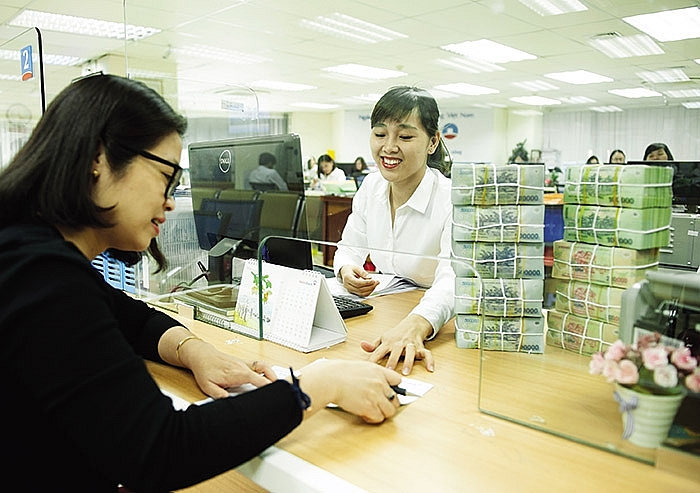Banks brace for tough year as Basel II looms
 |
| As retail profits tighten and Basel II is set to be implemented during 2019, a challenging year is expected for banks |
Following a successful year with good credit growth, financial institutions in Vietnam are laying out strategies for 2019. One top concern for lenders is raising capital to meet the capital adequacy ratio (CAR) imposed by Basel II and the State Bank of Vietnam (SBV). Analysts at Bao Viet Securities pointed out that listed banks need to collect at least $10 billion to ensure they satisfy CAR requirements by 2020 – a mission that lenders say they are struggling to complete.
There are a number of front-runners. For example, by late 2018, Vietcombank and Vietnam International Bank were recognised by the SBV as Basel II-compliant. Some other banks, such as Oriental Commercial Bank and TPBank, have also finished their adoption of Basel II and are waiting for official recognition in 2019.
However, the thirst for capital is still prevalent in the financial sector, especially at the 15 lenders that have been earmarked for Basel II trial runs.
Le Duc Thuy, former head of the National Financial Supervisory Commission, said that domestic banks have only managed to raise $2 billion in the past two years. Smaller banks such as Viet Capital Bank, Saigon Bank or Bao Viet Bank have not even finalised their plan yet.
“In mid-2018, the SBV warned banks that if we didn’t raise capital on time, our credit room would be lowered and that hurt our profits. This is why increasing capital is a key matter for us in 2019,” said the deputy CEO of a commercial bank.
Last year, LienVietPost Bank and VietinBank had to decrease their credit goal as both banks struggled to add new funds into their charter capital.
A quest for capital
Economist Le Xuan Nghia agreed that raising funds will be a headache for Vietnamese banks this year. As the required inflow is huge, banks have to either issue bonds or call for strategic investment from overseas investors.
Both of these options present their own risks and challenges. For example, some banks are accused of forcing their own employees to buy the bonds as a last resort, when bank leaders failed to find external buyers. One example is Agribank, which recently warded off rumours that it demanded each staff member to buy at least VND100 million ($4,350) worth of the bank’s bonds. Agribank aspires to raise VND4 trillion ($17.4 million) this year.
The other route, which is seeking foreign partners, is not easy either. Dang Linh Chi, partner at Baker McKenzie Vietnam, told VIR that this is a “chicken-and-egg situation” - in which Vietnamese banks need foreign capital in order to reach Basel II, while foreign investors often look for Basel II standards first before making a decision.
“If a Vietnamese bank already meets Basel II standards, it will attract investments from overseas. However, the problem is that to raise CAR and satisfy Basel II requirements, Vietnamese lenders have to look for foreign investment first,” said Chi, adding that investors are also put off by the 30-per-cent cap on foreign ownership at Vietnamese banks.
With these issues in mind, some smaller banks are thinking of merging with each other to create a bigger joint entity and meet Basel II CAR requirements.
Deputy Prime Minister Vuong Dinh Hue also encouraged mergers and acquisitions (M&A) between smaller commercial banks, and between foreign investors and struggling Vietnamese lenders.
Retail battles
Another problem that may haunt lenders in 2019 is increasing competition in retail banking. Vietnam’s deposit rates have shot up in recent months, threatening to eat into the net profit margins of banks.
This gloomy reality forces banks to diversify their income, focusing on services rather than lending activities. Examples include bancassurance, in which banks partner up with insurers for fee income.
Ha Huy Cuong, deputy CEO of ABBank, said that the lender will push both bancassurance and retail banking in 2019. Credit earnings, which took up 76 per cent of banks’ profits in 2018, are expected to dwindle in the coming years. Cuong said that this is also part of the progress towards Basel II.
Economist Nghia also forecasts a strategic shift to retail banking, which includes consumer lending and fee-based activities such as transactions and foreign exchange.
An important aspect of retail banking is digital capabilities, which allow Vietnamese lenders to meet banking needs of digital-savvy consumers anytime and anywhere.
“Investments into digital systems will save banks’ money in the long run, despite the initial set-up costs. Moreover, retail consumers these days expect banking services to be available 24/7 at their fingertips, thus banks have no choice but to upgrade their systems,” said Nghia.
He believed that retail banking, with an emphasis on digital capabilities, will be “a very tough market in 2019.”
What the stars mean:
★ Poor ★ ★ Promising ★★★ Good ★★★★ Very good ★★★★★ Exceptional
 Tag:
Tag:
Related Contents
Latest News
More News
- Private capital funds as cornerstone of IFC plans (February 20, 2026 | 14:38)
- Priorities for building credibility and momentum within Vietnamese IFCs (February 20, 2026 | 14:29)
- How Hong Kong can bridge critical financial centre gaps (February 20, 2026 | 14:22)
- All global experiences useful for Vietnam’s international financial hub (February 20, 2026 | 14:16)
- Raised ties reaffirm strategic trust (February 20, 2026 | 14:06)
- Sustained growth can translate into income gains (February 19, 2026 | 18:55)
- The vision to maintain a stable monetary policy (February 19, 2026 | 08:50)
- Banking sector faces data governance hurdles in AI transition (February 19, 2026 | 08:00)
- AI leading to shift in banking roles (February 18, 2026 | 19:54)
- Digital banking enters season of transformation (February 16, 2026 | 09:00)






















 Mobile Version
Mobile Version